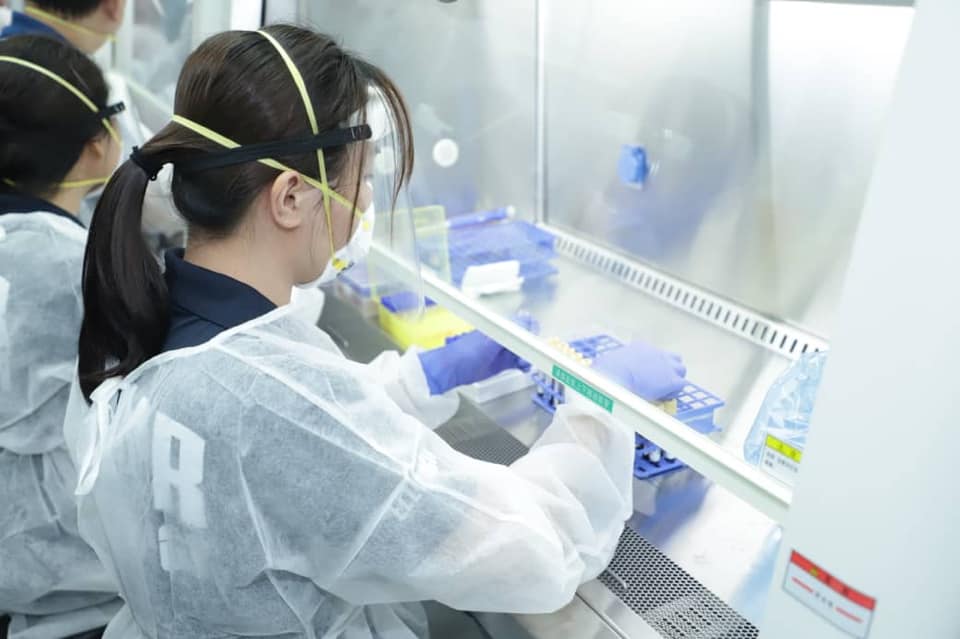The disclosure by the Sarawak Disaster Management Committee (“SDMC”) that five individuals who tested negative for Covid-19 at KLIA were found to be positive on testing upon arrival in Sarawak is worrying.
It raises questions about the whole testing process, the reliability of the antigen rapid test kit (“RTK”) used and the control and surveillance of Covid-19.
Sensitivity and specificity of antigen tests
The current gold standard for Covid-19 diagnostic testing is the reverse transcription polymerase chain reaction (“RT-PCR test”), which is relied on globally. Most RT-PCR tests have sensitivity and specificity of 90% or more. This means that 90% or more of those who test positive truly have the SARS-CoV-2 virus and that 90% or more will not slip through as a false negative.
As both the sensitivity and specificity of the RT-PCR test are not 100%, there will be instances of false positives and false negatives.
The RT-PCR test takes time as it has to be sent to a laboratory with the results available in several hours. On the other hand, the RTK test would produce a result in 30-45 minutes and many tests can be done simultaneously.
The Health Ministry was reported to have stated on 5 May 2020 that it would be using an RTK kit from South Korea which met its accuracy requirement with a sensitivity rate of 84.4% and a specificity rate of 100%. Whether the specificity of 100% is still a valid claim is debatable in the light of the SDMC’s statement.
Implications of test results
A single test result impacts not only on the individual but also the community.
An individual with a negative RTK result will go about his or her daily activities and come into contact with varying numbers of family, workmates, friends and strangers. If the individual is in fact positive, this would contribute to the spread of Covid-19. Such a finding would also impact on the individual’s physical and mental health with anxiety disorders, posttraumatic stress disorders, obsessive-compulsive disorders and the adverse social effects of isolation etc.
An individual with a positive RTK result will be investigated further. If the individual is in fact negative, he or she, will be similarly affected personally as the individual found RTK negative and RT-PCR positive.
Doubts about the testing process because of unreliable results will not only impact negatively on control and surveillance of Covid-19, but also public confidence in the government’s response.
Quality assurance
Quality assurance (QA”) refers to the total process of a laboratory which ensures that the final results reported are as accurate and reliable as possible.
The use of inaccurate test results can lead to the wrong management and treatment, and decisions and lapses in control and surveillance of Covid-19.
The QA system for any test, whether RT-PCR or RTK, is founded on:
- Standard operating procedures (“SOPs”) that cover all procedures from the taking of specimens, management of specimens, authorization and issuance of test reports should be available and staff trained on their compliance;
- Documentation with standardised laboratory forms and registers and staff trained to ensure consistent and complete documentation;
- Quality control (“QC”) refers to the procedures used in each assay to assure a valid test run and reliable results;
- Quality indicator monitoring refers to the collection and analysis of indicator(s) at each step of the testing process for the correct performance of the total testing process.
- External Quality assurance that analyses the accuracy of the entire testing process from taking, receipt and testing of samples to the reporting of results.
The SDMC statement raises questions about:
- The taking of the nasal swab – Were the healthcare providers trained and experienced? Were sufficient viral materials collected?;
- Safe collection and handling of the specimens;
- The QA measures – What were the QC measures in the laboratory? What were the compliance rates to the QC measures? Were there any key performance indicators (“KPI”) in the laboratory e.g. number of specimens tested by specimen type, number of positive, negative and invalid results, specimen rejection rate, rechecking or retesting rates? Was there any external audit?
- Can a single negative RTK or RT-PCR test rule out Covid-19 in an individual who has suggestive symptoms?
It is essential that doctors, particularly general practitioners, be provided information by the Health Ministry and private laboratories, about the RTK and RT-PCR tests used with regard to sensitivities, specificities and analytical specificities to ensure against interferents, notably cross-reactivity with other coronaviruses. This information will enable the provision of appropriate information to employers and employees.
The Health Ministry has, at the time of writing (9 July 2020), not published any data on the quality assurance of the viral Covid-19 tests, in particular, its reliability.
The exhortation for public cooperation in the control and surveillance of Covid-19 has to be supported by transparency that is fundamental to public trust.

Dr Milton Lum is a past President of the Federation of Private Medical Practitioners Associations, Malaysia and the Malaysian Medical Association. This article is not intended to replace, dictate or define evaluation by a qualified doctor. The views expressed do not represent that of any organization the writer is associated with.
- This is the personal opinion of the writer or publication and does not necessarily represent the views of CodeBlue.








